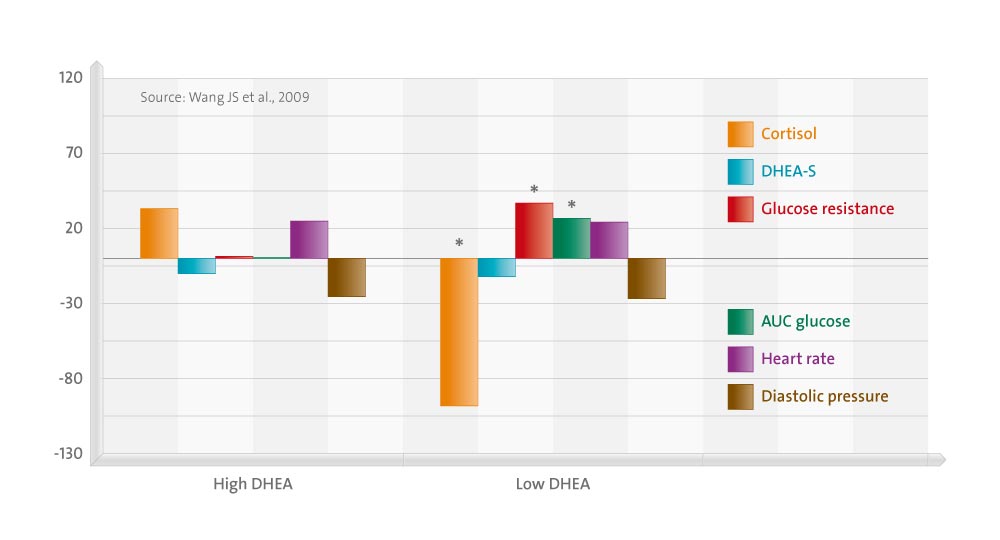The steroid dehydroepiandrosterone sulfate (DHEA-S) is associated with longevity and adaptation against external stress in humans. The aim of the study was to investigate the acute effect of a 30-min hot spring immersion at 41 degrees C on insulin resistance measures of 16 male subjects, in relation to DHEA-S level.
To elucidate the role of DHEA-S in the coping against the heat stress, all subjects were evenly divided into lower and upper halves according to their baseline DHEA-S concentrations. The levels of glucose, insulin, blood pressure, and stress hormones (growth hormone, testosterone, and cortisol) in both groups were compared before and after hot spring immersion.
The result shows that hot spring immersion significantly increased heart rate and reduced diastolic blood pressure, both of which were paralleled with a drop of DHEA-S concentration. Homeostasis model assessment for insulin resistance (HOMA-IR) and area under curve of glucose (GAUC) of oral glucose tolerance test were significantly increased by the hot spring immersion only in the Low DHEA-S group. Likewise, hot spring immersion caused an opposing effect on cortisol changes for the Low and High DHEA-S groups (+95% vs. -33%, p<0.05), respectively.
In conclusion, hot spring bathing induced insulin resistance confined only to those Low DHEA-S individuals. This response may be associated with a stress response such as increased cortisol levels.
